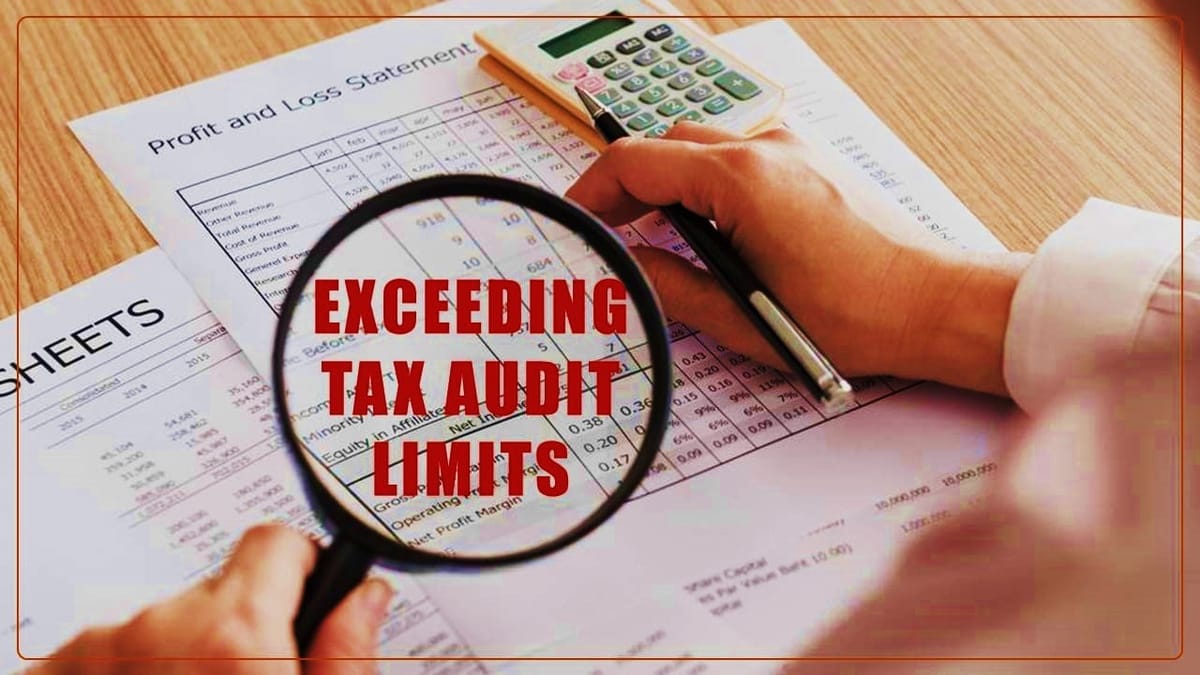Reetu | Aug 14, 2023 |

CA guilty of misconduct for exceeding Tax Audit Limit
The Disciplinary Committee of ICAI in the matter of CA. Buchayya Chetty Atmakuri held CA guilty of misconduct for exceeding Tax Audit Limit.
That vide findings dated 10-08-2022 under Rule 18(17) of the Chartered Accountants (Procedure of Investigations of Professional and Other Misconduct and Conduct of Cases) Rules, 2007, the Disciplinary Committee was inter-alia of the opinion that CA. Buchayya Chetty Atmakuri (M. No. 007731) (hereinafter referred to as the Respondent”) was GUILTY of professional misconduct falling within the meaning of item (1) of Part II of the Second Schedule to the Chartered Accountants Act 1949.
That pursuant to the said findings, an action under Section 218(3) of the Chartered Accountants (Amendment) Act, 2006 was contemplated against the Respondent and a communications dated 12-04-2023 was sent to him thereby granting him an opportunity of being heard in person / through video conferencing and to make written & verbal representation before the Committee on 27-04-2023, however the said notice returned undelivered stating that the Respondent has left his erstwhile professional address and shifted to some other location. Attempts were also made to get the notice delivered in person through the regional office, however; it was found that the Respondent has left the location of his registered address.
The Committee considered the reasoning as contained in findings holding the Respondent Guilty of Professional misconduct.
The Committee noted that the Council General Guidelines, No.1-CA(7)/02/2008, dated 8th August,2008 under Chapter VI “Tax Audit assignments under Section 44AB of the Income-tax Act, 1961 “, provide that a member of the Institute in practice shall not accept, in a financial year, more than the “the specified number of tax audit assignments” under Section 44AB of the Income-tax Act 1961. Further, Explanation given in Para 6.1, in sub-para(a) & (b) states that:
“the specified number of tax audit assignments” means –
(a) in the case of a Chattered Accountant in practice or a proprietary firm of Chattered Accountants, 45 tax audit assignments, in a financial year, whether in case of corporate or non-corporate assesses and
(b) in the case of firm of Chattered Accountants in practice, 45 tax audit assignments per partner in the firm, in a financial year, whether in respect of corporate or noncorporate assesses.
The Committee further noted that the tax audit assignment under Section 44AB of the Income-Tax Act 1961 is a time-bound assignment unlike other professional fields, and the work of audit requires precision. The certificate of audit issued by a Chartered Accountant under Section 44AB of Income Tax Act 1961 has statutory force for the purpose of Income Tax whereas a Chartered Accountant in practice is free to accept audits under Sections 44AD and 44AE of the Income-tax Act, 1961 without any limit. Thus, considering all these relevant factors, the Committee viewed that it cannot be said that ceiling of tax audit limit is in any way unreasonable or discriminatory. Accordingly, there is no basis for the contention that there is violation of Article 14 or Article 19(1)(g) of the Constitution of India.
The Committee further noted that the Guidelines do not in any way affect the rights of the Chartered Accountant under the Constitution of India being only a reasonable restriction as in the process of regulating and maintaining the status of Chartered Accountant, the measures taken to put a cap on tax audit assignments are intended to maintain and improve the quality of work and cannot in any way be stated to be an unreasonable restrictions. The Committee also noted the observations of the Supreme Court in Jyoti Prasad’s case stating as follows:
“Where the legislatures fulfil its purpose and enacts Jaws, which in its wisdom, to considered necessary for the solution of what after all is a very human problem the tests of “reasonableness” have to be viewed in the context of the issues which faced the legislature. In the constitution of such Jaws and particularly in judging of their validity the Courts have necessarily to approach it from the point of view of furthering the social interest which it is the purpose of the legislation to promote, for the Courts, are not in these matters, functioning as it were in vacuum, but as parts of a society which is trying by enacted law to solve its problems and achieve a social concord and peaceful adjustment and thus furthering the moral and material progress of the community as a whole”.
The Committee, accordingly, after consideration of all relevant facts and material on record as also the nature of tax audits, had found such a ceiling to be necessary in the larger interest of the profession and the guidelines on the tax audit assignment under Section 44AB of the Income Tax Act, 1961.
The Committee viewed that the Respondent has conducted 64 excess tax audits during financial year 2010-11 and 26 excess tax audits during financial year 2011-12.
The Committee thus viewed that the misconduct on the part of the Respondent has been established within the meaning of Clause (1) of Part II of Second Schedule and keeping in view the facts and circumstances of the case, material on record, findings of the Committee, the Committee decided to impose a fine of Rs. 90,000/- (Rupees Ninety Thousand only) upon the Respondent i.e., CA. Buchayya Chetty Atmakuri (M. No. 007731 ).
For Official Order Download PDF Given Below:
In case of any Doubt regarding Membership you can mail us at [email protected]
Join Studycafe's WhatsApp Group or Telegram Channel for Latest Updates on Government Job, Sarkari Naukri, Private Jobs, Income Tax, GST, Companies Act, Judgements and CA, CS, ICWA, and MUCH MORE!"